Research-relevant synergy effects result on the one hand from the integration of the Department of Physics into the engineering environment of the TU Darmstadt (with shares of 50% engineering sciences, 35% natural sciences and 15% humanities) and on the other hand from the proximity to the research facilities of the Helmholtz Centre for Heavy Ion Research (GSI) as well as to neighbouring universities such as Frankfurt, Mainz and Heidelberg. These form a natural framework for the activities of the Department of Physics in research and teaching.
In principle, research in Darmstadt does not take place in an ivory tower. Through guided tours, lectures and internships for schoolchildren, members of the department promote public understanding of research in modern physics.
Excellent projects
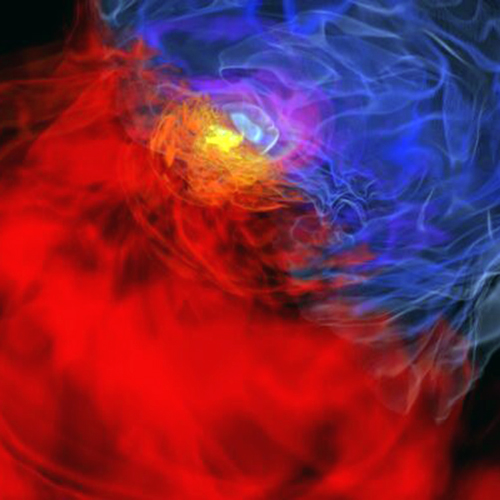
LOEWE Research Cluster ELEMENTS
Understanding the dynamics of neutron stars, investigating the formation of gravitational waves and the heaviest chemical elements – that is the research aspiration of physicists in the ELEMENTS project. They will combine their expertise in gravitational physics and the physics of nuclear reactions and use the outstanding infrastructure of accelerator facilities in Hesse.
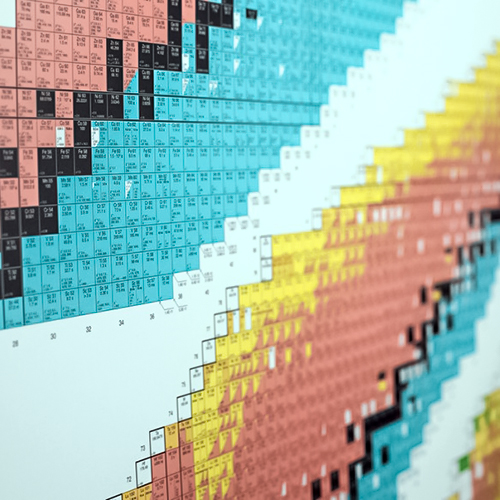
CRC 1245 Nuclei: From fundamental interactions to structure and stars
The strong experiment-theory synergies in Darmstadt have enabled an exciting, long-term research programme in nuclear structure physics and nuclear astrophysics that will also be important for astroparticle physics.
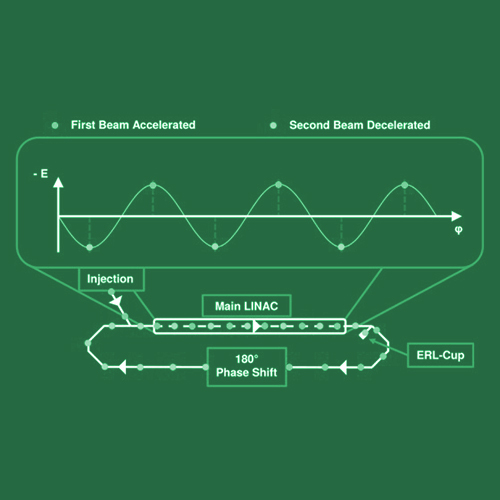
RTG 2128 AccelencE
AccelencE trains early-career researchers in the interdisciplinary field of accelerator science. The focus is on energy recovery linacs (ERLs): A new and still little-researched class of particle accelerators that allow the energy used to accelerate the particle beam to be largely recovered.
Some of our excellent minds
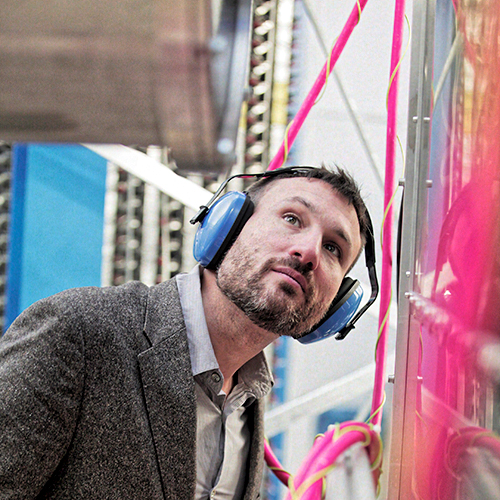
Alexandre Obertelli
How were chemical elements – the building blocks of our world – originally formed? What are the processes behind their formation? In the context of these fundamental questions in nuclear and atomic physics Humboldt Professor Alexandre Obertelli studies so-called exotic nuclei, atomic nuclei with a comparatively disproportionate number of protons or neutrons.
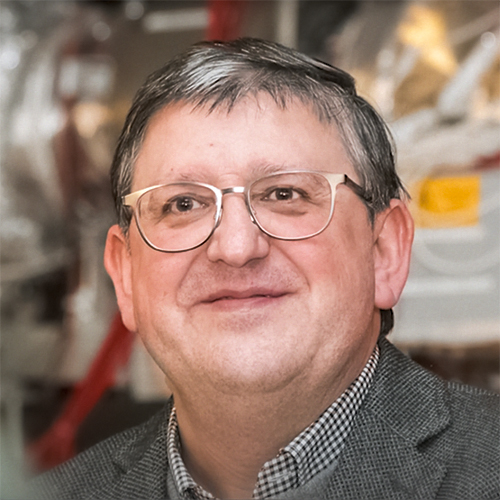
Gabriel Martínez-Pinedo
The 2022 Leibniz Prize winner works at the interface between astrophysics, nuclear physics and neutrino physics. He researches and teaches at the Institute for Nuclear Physics at TU Darmstadt and at the GSI Helmholtz Centre for Heavy Ion Research in Darmstadt.
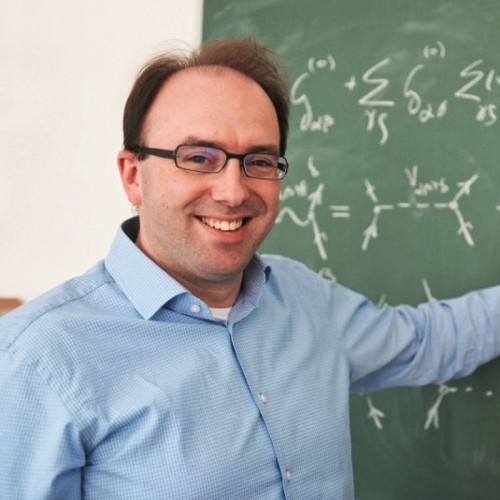
Achim Schwenk
The highly-cited physicist explores the Strong Interaction in the universe. The Strong Interaction is responsible for holding neutrons and protons together in the atomic nucleus and for understanding the densest observable matter in neutron stars.
Interdisciplinary Networking
The intensification of interdisciplinary networking within and outside of the TU Darmstadt as well as collaborations with GSI and neighbouring universities have had a lasting influence on and strengthened the research activities of the Department of Physics in recent years. Thus, the department is a major participant in various forms of DFG joint projects, such as clusters of excellence, collaborative research centers, research groups and graduate schools. Within the framework of the international large-scale project FAIR and the SFB 1245, the research infrastructure in the field of nuclear and particle physics has been significantly expanded through the third-party funding acquired together with GSI and neighboring universities. Interdisciplinary collaborations between the Department of Physics and the Departments of Biology, Chemistry, Computer Science, Mechanical Engineering, Materials Science and Mathematics were significantly strengthened, for example, within the framework of excellence programmes (LOEWE centres, LOEWE focal points).












